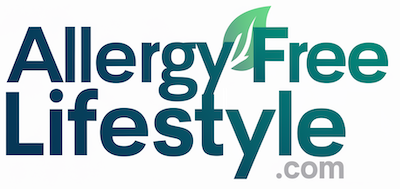Skin allergies are a prevalent concern for French Bulldogs, often causing discomfort and frustration for both pets and their owners. The characteristic symptoms of itchy, inflamed skin and chronic ear infections are challenging to manage, making it essential to find effective solutions. One of the most critical aspects of managing skin allergies is diet, as many French Bulldogs suffer from food allergies, often referred to as food intolerances, that can exacerbate their symptoms.
Combing through and selecting the best food for French Bulldogs with skin allergies to your Frenchie can be a tiresome and scary task due to imagine, due to the overwhelming variety of brands and formulations available. However, a carefully tailored diet can significantly improve your Frenchie’s quality of life by reducing allergic reactions and supporting overall health. This comprehensive, well-researched insight will help you understand the role of diet in managing skin allergies and provide practical recommendations to make the right food choices for your beloved pet.
Understanding Skin Allergies in French Bulldogs
French Bulldogs are genetically predisposed to several health issues, and skin allergies are among the most common. Understanding the specific nature of these allergies is crucial for effective management. Here’s what you need to know:
Common Symptoms of Skin Allergies
Skin allergies in French Bulldogs can manifest in a variety of ways, including:
- Itching and Scratching: Persistent itching, particularly around the ears, paws, and belly.
- Redness and Inflammation: Inflamed skin that may appear red and swollen.
- Chronic Ear Infections: Frequent ear infections, often accompanied by a foul odor and wax buildup.
- Hair Loss: Patchy hair loss resulting from excessive scratching or biting.
- Hot Spots: Localized areas of inflamed, moist, and infected skin due to constant licking.
Triggers of Food-Related Allergies
Food allergies can occur when your dog’s immune system (similar to cats and humans) mistakenly identifies a particular food ingredient as a threat. Some common food-related allergens include:
- Animal Proteins: Beef, chicken, lamb, dairy, and eggs.
- Grains: Wheat, corn, and soy.
- Additives and Preservatives: Artificial colors, flavor enhancers, and chemical preservatives can trigger reactions.
Role of Diet in Allergy Management
Choosing the right diet is a crucial factor in the management of your French Bulldog’s skin allergies because:
- Elimination of Allergens: Removing potential allergens from their diet can significantly reduce or eliminate allergic reactions.
- Nutrient Support: Providing a diet rich in vitamins, minerals, and healthy fats strengthens the immune system, helping to combat inflammation and promote skin health.
- Improved Digestive Health: A high-quality diet can improve digestion, reducing the likelihood of gastrointestinal distress that may exacerbate allergies.
By understanding these symptoms and triggers, you can work with your veterinarian to identify and eliminate the root cause of your French Bulldog’s skin allergies, allowing you to craft a dietary plan that best supports their health and well-being.
Diagnosing Food Allergies
Diagnosing food allergies in French Bulldogs can be a complex process because the symptoms often overlap with other types of allergies and conditions. However, correctly identifying the specific allergens is essential for managing your dog’s skin health effectively. Here’s a step-by-step approach to diagnosing food allergies:
1. Veterinary Consultation
Start with a consultation with your veterinarian. They will conduct a thorough examination and might recommend tests to rule out other conditions, such as fleas, mites, or environmental allergens, that could also cause itching and skin irritation.
2. Elimination Diet Process
The elimination diet is the most reliable method to diagnose food allergies:
- Step 1: Switch to a limited-ingredient diet containing a novel protein and carbohydrate that your French Bulldog hasn’t consumed before. This could be a commercial hypoallergenic food or a home-cooked diet recommended by your veterinarian.
- Step 2: Feed your dog only this diet for 8 to 12 weeks, avoiding all treats, table scraps, and flavored medications that could interfere with the trial.
- Step 3: Monitor your dog’s symptoms during the trial. If their skin condition improves, a food allergy is likely.
3. Reintroduction of Suspected Allergens
After the elimination diet, gradually reintroduce the suspected allergens one by one:
- Introduce one ingredient at a time, such as chicken or wheat.
- Monitor for signs of any allergic reaction over the next few days, such as itching, redness, or digestive issues.
- If a reaction occurs, exclude that ingredient from your French Bulldog’s diet permanently.
4. Food Allergy Testing
In some cases, veterinarians may recommend blood tests or skin tests to identify potential food allergens. While these tests are not always conclusive, they can provide additional insights when combined with the elimination diet process.
Diagnosing food allergies requires patience and dedication but is critical for managing your French Bulldog’s skin allergies. By identifying the specific triggers and eliminating them from their diet, you can significantly improve your pet’s quality of life and minimize uncomfortable symptoms.
Key Features of the Best Foods for French Bulldogs with Skin Allergies
Selecting the right food and ingredient for your French Bulldog with skin allergies involves understanding the specific dietary needs of the breed and identifying formulations that minimize allergen exposure. Here are key features to look for in the best foods:
Hydrolyzed Protein Diets
Hydrolyzed protein diets feature proteins broken down into smaller, non-allergenic molecules. Because the immune system doesn’t recognize these proteins as threats, they are less likely to trigger allergic reactions.
- Benefit: Great for elimination diets and reducing inflammation.
- Key Brands: Hill’s Prescription Diet z/d, Royal Canin Veterinary Diet Hydrolyzed Protein Adult HP.
Limited Ingredient Diets (LID)
Limited ingredient diets contain fewer components, often focusing on a single protein source and a limited number of carbohydrates. This makes it easier to identify allergens and reduces the likelihood of an allergic response.
- Benefit: Simplifies identifying potential allergens.
- Key Brands: Natural Balance L.I.D. Limited Ingredient Diets, Canidae Grain-Free PURE Limited Ingredient Diet.
Novel Protein Diets
Novel protein diets use protein sources your French Bulldog hasn’t eaten before. This eliminates the risk of triggering an allergic response to a commonly consumed allergen like beef or chicken.
- Benefit: Helps to prevent reactions by introducing less common proteins like duck or venison.
- Key Brands: Zignature Turkey Limited Ingredient Formula, Blue Buffalo Basics Limited Ingredient Diet.
Grain-Free Diets
Some dog breeds are sensitive to grains such as wheat or corn, which can cause gastrointestinal distress or allergic reactions. Grain-free diets exclude these ingredients, using carbohydrates like sweet potatoes or peas instead.
- Benefit: Avoids common grain allergens that could irritate your French Bulldog’s skin.
- Key Brands: Taste of the Wild High Prairie Grain-Free, Merrick Grain-Free Real Texas Beef & Sweet Potato Recipe.
Omega-3 Fatty Acid-Enriched Foods
Omega-3 fatty acids feature anti-inflammatory properties that can reduce itchiness and promote healthier skin. Foods containing fish oil or flaxseed are rich in omega-3s.
- Benefit: Improves overall skin health and reduces inflammation.
- Key Brands: Wellness Core Natural Grain-Free Dry Dog Food, Ocean Whitefish, Herring & Salmon, and Orijen Six Fish Grain-Free Formula.
Opting for the right food with hypoallergenic ingredients for a French Bulldog with skin allergies requires understanding your dog’s unique needs. Whether it’s hydrolyzed proteins, limited ingredients, or grain-free formulations, focusing on high-quality, allergen-free foods can alleviate discomfort and improve skin health.
Top Recommendations: Best Foods for French Bulldogs with Skin Allergies
With many options available, it’s crucial to choose high-quality foods that specifically cater to your French Bulldog’s unique needs. Below are some of the best foods across different dietary approaches to help alleviate skin allergies in your Frenchie:
Hydrolyzed Protein Diets
These diets are ideal if your veterinarian recommends a specialized formula for food sensitivities.
Hill’s Prescription Diet z/d

It contains hydrolyzed chicken protein, which is broken down into small, non-allergenic molecules, minimizing the risk of immune reactions. It also includes vitamin E and omega-6 fatty acids for healthy skin and coat. According to numerous Frenchie owners, Hill’s prescription diet is probably the Best Food for French Bulldogs with Skin Allergies. If your Frenchie likes chicken, then this is definitely the one to get. See what other dog owners are saying.
Royal Canin Veterinary Diet Hydrolyzed Protein Adult HP

If, for some reason, Hill’s Prescription Diet z/d isn’t the one for your dog, then Royal Canin Veterinary Diet Hydrolyzed Protein for Adult Dogs should be next on your list. It Features hydrolyzed soy protein that’s gentle on the digestive system and reduces the risk of triggering allergies. It also contains Omega-3 fatty acids that support skin barrier health, leaving you with a dog with healthy skin! The Royal Canin Veterinary Diet Hydrolyzed Protein is one of the Best Food for French Bulldogs with Skin Allergies, specifically adult French bulldogs.
Limited Ingredient Diets
These are effective if you need to avoid common allergens like chicken or grains.
Natural Balance L.I.D. Limited Ingredient Diets
Uses a single protein source and limited carbohydrates to prevent allergic reactions. Salmon and sweet potato are popular combinations known for their skin-boosting nutrients.
Canidae Grain-Free PURE Limited Ingredient Diet

Contains up to 10 key ingredients per formula. Lamb, bison, and salmon are among the main proteins available, which can suit dogs with allergies to traditional meats.
Novel Protein Diets
A novel protein diet may help if your dog is allergic to more common proteins like beef or chicken.
- Blue Buffalo Basics Limited Ingredient Diet, Grain-Free Natural Adult Dry Dog Food, Turkey & Potato
- Uses turkey as a novel protein while avoiding wheat, soy, corn, dairy, and eggs, which can often cause allergies.
- Zignature Turkey Limited Ingredient Formula Grain-Free Dry Dog Food
- Features a unique blend of turkey and chickpeas to provide a hypoallergenic diet that’s also nutrient-rich.
Grain-Free Diets
Opt for grain-free foods if your French Bulldog exhibits sensitivities to wheat, corn, or other grains.
- Taste of the Wild High Prairie Grain-Free Dry Dog Food
- Offers a mix of bison and venison paired with sweet potatoes for easy digestion. Probiotics, antioxidants, and omega-3s promote strong immune and skin health.
- Merrick Grain-Free Real Texas Beef & Sweet Potato Recipe Dry Dog Food
- Contains deboned beef as the primary protein, supplemented by peas and sweet potatoes for energy and a well-rounded diet.
Omega-3 Fatty Acid-Enriched Foods
These foods are rich in anti-inflammatory omega-3s, which can reduce itchiness and support healthy skin.
- Wellness Core Natural Grain Free Dry Dog Food Ocean Whitefish, Herring & Salmon
- This recipe is packed with high-quality fish proteins and provides an abundance of omega-3s and vitamins to soothe the skin and boost coat shine.
- Orijen Six Fish Grain-Free Formula Dry Dog Food
- Features wild-caught fish like mackerel, herring, and flounder, providing a premium blend of omega fatty acids for exceptional skin and coat health.
These top recommendations address specific food sensitivities and nutritional needs for French Bulldogs with skin allergies. By selecting foods tailored to your Frenchie’s unique requirements, you can help alleviate symptoms and improve their overall quality of life.
Supplementation for Skin Health
In addition to choosing the right diet, providing your French Bulldog with beneficial supplements can further enhance their skin health and help reduce allergy symptoms. Here are some key supplements to consider:
1. Fish Oil
Fish oil is widely recognized as one of the best sources of omega-3 fatty acids, packing potent anti-inflammatory properties. It can help soothe itchy skin, reduce inflammation, and promote a healthier coat.
- Key Components: Eicosapentaenoic Acid (EPA) and Docosahexaenoic Acid (DHA).
- Benefits: Reduces inflammation, strengthens the skin barrier, and promotes a shiny coat.
2. Probiotics
A balanced gut microbiome can positively influence your French Bulldog’s immune system. Probiotics help restore healthy gut bacteria, which can improve digestion and reduce gastrointestinal inflammation.
- Key Components: Lactobacillus, Bifidobacterium, and Enterococcus species.
- Benefits: Enhances digestion, strengthens immunity, and may reduce allergic reactions.
3. Vitamin E
Vitamin E acts as a powerful antioxidant, barking off and shielding the skin from havoc caused by free radicals. It can be applied both topically and orally to support skin health.
- Key Components: Alpha-tocopherol.
- Benefits: Promotes skin repair, reduces inflammation, and supports the immune system.
4. Coconut Oil
Coconut oil is packed with healthy fats and has antimicrobial properties that can reduce skin inflammation when applied topically. It can also be included in your dog’s diet to boost overall skin health.
- Key Components: Lauric acid and medium-chain triglycerides (MCTs).
- Benefits: Soothes irritated skin, reduces itching, and promotes a glossy coat.
5. Quercetin
Also known as “nature’s Benadryl,” quercetin is a plant-based flavonoid that has anti-inflammatory and antioxidant properties. It can help in combating the severity of allergic reactions.
- Key Components: Flavonoids and antioxidants.
- Benefits: Minimizes allergic reactions, reduces inflammation, and supports the immune system.
By incorporating these supplements into your French Bulldog’s diet, you can significantly improve their skin health and manage allergy symptoms more effectively. However, always reach out to your veterinarian before starting any new supplement regimen whether hypoallergenic or not, this will ensure it aligns with your dog’s specific diet and health needs.
Feeding Practices for Optimal Health
In addition to selecting the best food and supplements, how you feed your French Bulldog with skin allergies is crucial for managing their health. Proper feeding practices can improve digestion, prevent overfeeding, and help maintain a balanced immune system. Here are some key feeding strategies to consider:
1. Consistent Meal Times
Establishing a consistent feeding schedule helps regulate your dog’s digestive system and prevents potential stomach issues.
- Benefit: Stabilizes digestion and reduces the risk of gastrointestinal upset, which can exacerbate allergic reactions.
- Practice: Feed your dog at the same times every day to help their body adjust to a predictable eating pattern.
2. Proper Portions
Overfeeding can lead to weight gain and stress the immune system, worsening skin allergies. Calculating accurate portion sizes is essential for managing weight and maintaining your dog’s overall health.
- Benefit: Prevents obesity, which can aggravate allergic conditions and lead to other health problems.
- Practice: Use your dog’s weight, age, and activity level as a guide to determine the appropriate portion size. Adjust portions as needed based on weight changes.
3. Slow-Feeding Bowls
Some dogs eat too quickly, and such speedy eating habits can cause bloating, indigestion, and vomiting. Slow-feeding bowls are designed to slow down your dog’s eating pace.
- Benefit: Improves digestion and reduces the risk of gastrointestinal inflammation, which can impact skin health.
- Practice: Use a slow-feeding bowl to encourage your French Bulldog to eat at a more moderate pace.
4. Avoid Table Scraps and Treats
Table scraps and many commercial treats can contain allergens that may trigger skin reactions in sensitive dogs.
- Benefit: Minimizes exposure to unnecessary allergens that could aggravate skin allergies.
- Practice: Avoid giving your French Bulldog table scraps or low-quality treats. Opt for hypoallergenic treats or single-ingredient snacks.
5. Monitor for Food Allergies
Pay attention to any adverse reactions after introducing new foods into your French Bulldog’s diet. This will help identify any potential allergens and remove them quickly.
- Benefit: Prevents prolonged exposure to ingredients that could worsen skin conditions.
- Practice: Introduce new foods one at a time and monitor for symptoms like itching, redness, or gastrointestinal issues.
Combining Nutrition with Veterinary Care
It’s essential to work closely with your veterinarian when implementing new feeding practices or diets for your French Bulldog. Regular vet visits will help identify any underlying conditions that could impact their skin health and allow for timely adjustments to the diet.
By implementing these feeding practices, you can ensure that your French Bulldog receives the right nutrition while minimizing the risk of exacerbating skin allergies. Consistent feeding times, proper portions, and high-quality foods are essential for promoting optimal health and supporting your dog’s immune system.
Conclusion – The Best Food for French Bulldogs with Skin Allergies
Selecting the best food for a French Bulldog with skin allergies requires a careful, holistic approach. Understanding the underlying causes of your French Bulldog’s skin conditions is essential for effectively managing them through diet. Working closely with your vet, this way, you can identify the specific allergens affecting your dog and choose foods that reduce exposure to those triggers.
Hydrolyzed protein, limited ingredient, novel protein, grain-free, and omega-3 fatty acid-enriched diets can all play a significant role in minimizing allergic reactions and promoting healthier skin. Additionally, incorporating beneficial supplements like fish oil, probiotics, and vitamin E can further improve your French Bulldog’s immune response and overall skin health.
Equally important are the feeding practices you follow. Consistent meal times, proper portions, and avoiding allergen-containing treats or table scraps will ensure your Frenchie is nourished in the best way possible. Combining these dietary strategies with regular veterinary care will help identify and address any new issues promptly, enabling you to adjust the diet as needed.
By being proactive and informed about your French Bulldog’s diet, you can significantly improve their quality of life, reducing discomfort and boosting their overall well-being. A balanced, allergy-friendly diet will ensure that your French Bulldog can thrive, providing you both with many happy and healthy years together.
Frequently Asked Questions
Q1: How long does it take to see improvements after changing my French Bulldog’s diet?
A1: Improvements can vary based on the severity of your French Bulldog’s skin allergies. Typically, it should require around 8 to 12 weeks after starting a new diet to notice significant changes in their skin health. Be patient and monitor your dog for signs of improvement, such as reduced itching or clearer skin.
Q2: Can I use homemade food for my French Bulldog with skin allergies?
A2: Yes, homemade food can be an option if prepared with veterinary guidance. Working with a vet or a canine nutritionist ensures the food meets your dog’s specific dietary needs while excluding any known allergens.
Q3: What should I do if my French Bulldog reacts poorly to a new diet?
A3: If your dog shows signs of a poor reaction, such as increased itching, diarrhea, or vomiting, stop feeding that food and consult your veterinarian. They can help identify the problematic ingredient and suggest an alternative diet that is better suited to your dog’s allergies.
Q4: Are there specific treats that are safe for French Bulldogs with allergies?
A4: Yes, hypoallergenic treats and single-ingredient snacks like dried sweet potatoes or carrots are often suitable for dogs with allergies. Ensure that any treats align with the protein sources and dietary guidelines of your French Bulldog’s main diet.
Q5: How can I ensure my French Bulldog gets all the nutrients they need on a limited-ingredient diet?
A5: Limited-ingredient diets can sometimes miss specific nutrients if not carefully balanced. Opt for high-quality commercial diets that are formulated to meet nutritional standards. If feeding a homemade diet, work with a veterinarian or nutritionist to create a balanced plan.
Q6: Can supplements completely cure my French Bulldog’s skin allergies?
A6: While supplements like fish oil and probiotics can alleviate symptoms and support skin health, they cannot completely cure allergies. They work best as part of a comprehensive approach that includes eliminating allergens and providing high-quality nutrition.
Q7: Should I consult my veterinarian before changing my French Bulldog’s diet?
A7: Yes, always consult your veterinarian before making significant changes to your dog’s diet. They can help guide the selection process and ensure that the new food will address your dog’s specific needs without introducing new allergens.




